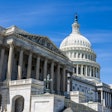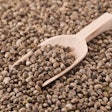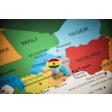
Letter sent to Sonny Perdue asks for application deadline, more flexibility in structure
Several agriculture groups have asked the U.S. Department of Agriculture (USDA) to extend the application deadline for the Coronavirus Food Assistance Program (CFAP).
The American Farm Bureau Federation, National Aquaculture Association, National Cattlemen’s Beef Association, National Milk Producers Federation and National Sorghum Producers are among the signatories to a letter sent to Agriculture Secretary Sonny Perdue on August 7.
The letter says the groups are concerned that the August 28 deadline may not allow enough time for all eligible producers to participate in the US$9.5 billion relief program, “including producers of commodities that were recently added to the list of eligible commodities and commodities that are likely to become eligible through the NOFA (Notice of Funding Availability) process.”
The additional commodities under consideration for eligibility include specialty crops, non-specialty crops, aquaculture, floriculture and horticultural products.
“To ensure all eligible producers receive CFAP support, the undersigned organizations respectfully request the department extend the sign-up deadline for CFAP,” the letter said. “This will ensure FSA (Farm Service Agency) staff has adequate time to process all submitted applications and farmers have ample opportunities to enroll eligible commodities. At the same time, we strongly encourage you to increase producer and stakeholder engagement initiatives. While the Department has done a commendable job in reaching out to all affected parties, communication and outreach by FSA staff has likely been significantly impacted by the lack of face-to-face interactions; in addition, many producers eligible for CFAP may have had limited or no previous interaction with FSA staff. This latter fact likely impacted the estimates of CFAP eligibility and benefits distributed to impacted producers.”
The letter also asks the USDA to “announce second tranche payments and further review CFAP eligibility criteria including sales dates, second tranche payment rates and market contract eligibility, such as the definition of price risk and the inconsistency between interpretation of livestock sales, dairy sales and crop sales with respect to the use of futures or forward contracts.”
Specifically, the letter asks for flexibility to allow producers to take full advantage of relief programs.
“As flexible as an approach as possible should also be taken to the program, and any future support efforts, to ensure that producers can receive the full benefits to which they are entitled,” the letter says. “When applying direct attribution to each operation, we request that you apply each owner’s share to the overall CFAP payment to which the entity is entitled, not to the payment limitation itself, in order to maximize the benefit afforded to operations of all sizes and avoid unfairly limiting support to certain farms based on ownership structure. In addition, we ask that you treat operations that are held in trust as corporations for purposes of determining eligible CFAP payments. Some dairy farmers in particular are organized in this manner, with multiple partners often included in one trust, and should not receive a reduced benefit on account of this unrelated business decision.”
The letter says the payment limit structure is too restrictive and disproportionately affects specialty crop, dairy, hog and cattle producers.
View our continuing coverage of the novel coronavirus (COVID-19) pandemic.











